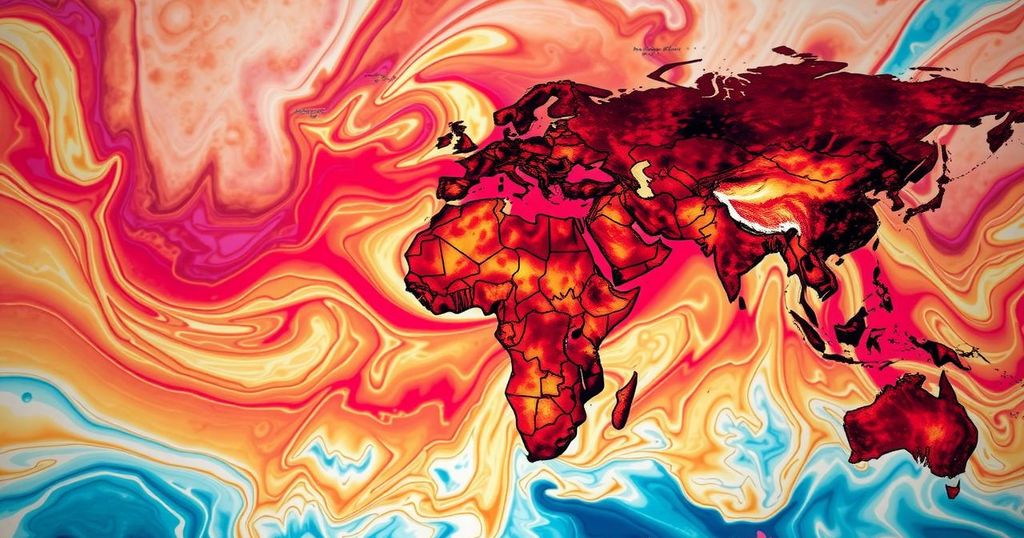Weather
AFRICA, ARCTIC, ASIA, CLIMATE, COPERNICUS, COPERNICUS CLIMATE CHANGE SERVICE, EUROPE, EXTREME WEATHER, FORECAST, GLOBAL WARMING, GREENHOUSE GAS EMISSIONS, NASA, NATIONAL CENTERS FOR ENVIRONMENTAL INFORMATION, NCEI, NOAA, NORTH AMERICA, OCEANIA, SERVICE, SOUTH AMERICA, UK MET OFFICE, WEATHER
Daniel O'Connor
0 Comments
2024: The Hottest Year on Record with Alarming Climate Trends
In 2024, global average temperatures soared to unprecedented levels, marking it the warmest year on record. Notable declines in Antarctic sea ice and record-high ocean heat content were reported. While cyclone activity remained near average, significant increases in temperatures highlight the urgent need for climate action.
According to a comprehensive analysis by scientists from the National Oceanic and Atmospheric Administration (NOAA), 2024 has officially been recorded as the warmest year ever. The past year witnessed unprecedented global temperatures rising 2.32 degrees Fahrenheit (1.29 degrees Celsius) above the 20th-century average. Significant warming was noted across several regions, including Africa, Europe, North America, Oceania, and South America, each recording their highest temperatures to date. The Arctic and Asia followed closely with their second warmest years recorded in history, underscoring a troubling trend in global climate patterns.
Notably, Antarctic sea ice extent reached its second lowest on record, averaging just 4 million square miles in 2024. The maximum recorded in September was also the second lowest. The ongoing decline in polar ice illustrates the drastic effects of climate change, while the upper ocean heat content reached unprecedented levels, highlighting the ocean’s capacity to absorb heat and its role as a critical climate indicator.
In 2024, global tropical cyclone activity was relatively moderate, with 85 named storms forming globally, close to the historical average. Among these, 42 reached tropical cyclone status, and four achieved Category 5 strength. Such data points contribute to a growing body of evidence showcasing the direct impact of climate change on extreme weather patterns and the urgency for comprehensive climate action.
The cumulative data presented compels both scientists and policy-makers alike to confront the implications of this ongoing climate crisis with resolute action.
The data presented in the NOAA report highlights alarming trends in global warming and its effects. The temperature rise seen in 2024 surpasses all previous years since records began in 1850, reinforcing concerns regarding human-induced climate change. Antarctic sea ice coverage exemplifies the impacts of warming, with significant reduction being noted. In conjunction with rising sea levels and ocean temperatures, these changes indicate a shifting climate system that demands immediate attention and action.
The year 2024 stands as a stark reminder of the escalating climate crisis, emerging as the warmest year on record with significant changes in temperature and sea ice extent. The findings underscore the need for global action to mitigate these changes and address the broader implications of climate change. Continued monitoring and responsive actions will be crucial in confronting the urgent challenges posed by a warming planet.
Original Source: www.noaa.gov




Post Comment